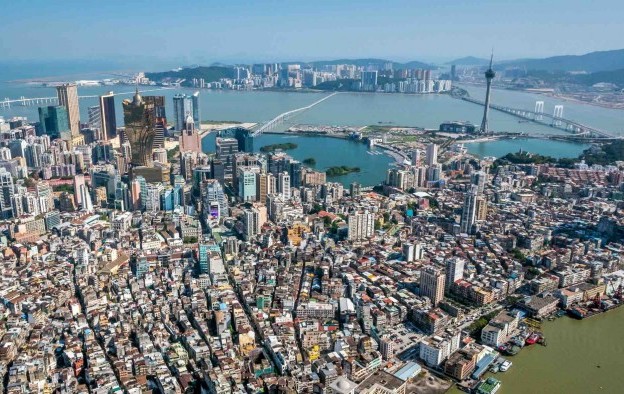Macau govt likely proactive on casinos in 2016: analyst
Jan 04, 2016 Newsdesk Latest News, Macau, Top of the deck

The Macau government could be moving to a “more proactive” phase in running the city’s gaming industry, says a note from Union Gaming Securities Asia Ltd.
The brokerage’s commentary was in the context of a trend whereby the Macau government has amended its policy of publishing the city’s monthly casino gross gaming revenue (GGR) data on the first working day of the following month. Since November, the authorities have started publishing such monthly data even on public holidays or weekends immediately following the reporting period.
“… we think it is possibly indicative of a more proactive approach to managing the gaming industry under the stewardship of Macau’s Economy and Finance Secretary (Mr Lionel Leong [Vai Tac]) and the recently appointed new head of the DICJ (Mr Paulo Martins Chan),” said the note from analyst Grant Govertsen.
“Mr Chan was, until recently, assistant public prosecutor-general in Macau, and his legal background is seen as strategic as the DICJ seeks to optimise gaming regulations as part of the mid-term review, as well as try and navigate through the current downturn,” added Mr Govertsen.
He was referring firstly to the new director of the local casino regulator, the Gaming Inspection and Coordination Bureau – known by its Portuguese acronym DICJ; secondly to plans announced by Mr Leong last year – and reiterated by Mr Chan when he took up his post on December 1 – to make changes to the regulatory system for junkets in the city’s casino industry; and thirdly to a government-commissioned review into the performance of the city’s six current casino operators, some of the findings of which are expected to be made public early this year.
Union Gaming Securities Asia added in its Friday note: “We continue to believe that VIP [gaming] will face an even tougher 2016 than 2015 and are currently forecasting a VIP GGR decline of 12 percent. Our estimates contemplate continued demand weakness, which will likely be exacerbated by pressures on the regulatory front (e.g. smoking ban, stepped up junket compliance) and on the operational front (liquidity).”
China’s central government would in 2016 be likely to “continue with its anti-corruption campaign – in order to fight illegal movement of funds, underground banking and illegal currency exchange,” Tony Tong, director and co-founder of Pacific Financial Services Ltd, a Hong Kong-based firm whose services include debt collection and risk management, told GGRAsia last week.
Mass market outlook
Mr Govertsen was more upbeat about the prospects in 2016 for mass-market gambling in Macau.
“Mass will continue to outperform VIP going forward having already demonstrated stabilisation over the last two quarters. The biggest question mark remains whether new supply will be enough to entice customers to come back to Macau and forego spending leisure and entertainment dollars in other places like Japan and [South] Korea,” said the Union Gaming Securities Asia analyst.
A note on Sunday from Deutsche Bank Securities Inc referred to the likely impact on the Macau market in the first quarter 2016 of Studio City, a gaming resort 60 percent owned by Melco Crown Entertainment Ltd, and which opened on October 27.
“Assuming limited aggregate incremental demand from Studio City and barring an unforeseen turnaround in the market, we believe the first quarter 2016 is poised to start the year with a mid- to high-teens year-on-year decline. If we were to run rate [extrapolate] the US$74.3 million daily average for the year it would imply 2016 GGR of US$27.2 billion, down 5.9 percent year-on-year,” stated Deutsche Bank analysts Carlo Santarelli and Danny Valoy.
Wells Fargo Securities Inc said in a note on December 31 that it saw a number of macroeconomic issues for China that could create headwinds for Macau gaming in 2016.
“Chinese corporate defaults are expected to rise in 2016, [and] China’s currency devaluation will likely be gradual,” noted the brokerage.
A note in early December from brokerage Daiwa Securities Group Inc said a likely further depreciation of China’s currency against the U.S. dollar during 2016 would add to the challenges for the Macau casino industry.
Macau casinos mostly denominate bets in Hong Kong dollars, a currency pegged to the U.S. dollar.
Related articles
-
 Macau Nov GGR US$2.3bln, down 11pct...
Macau Nov GGR US$2.3bln, down 11pct...Dec 01, 2024
-
 Tai Kin Ip new economy secretary, leads...
Tai Kin Ip new economy secretary, leads...Dec 01, 2024
More news
-
 Macau overseas visitors top 2.1mln in...
Macau overseas visitors top 2.1mln in...Dec 19, 2024
-
 TCS John Huxley installs Roulette Xtra...
TCS John Huxley installs Roulette Xtra...Dec 19, 2024
Latest News
Dec 19, 2024
The number of visitor arrivals to Macau in the first 11 months of 2024 reached nearly 31.89 million, up 26.2 percent from the prior-year period, according to data published on Thursday by the...Sign up to our FREE Newsletter
 (Click here for more)
(Click here for more)
Pick of the Day
US$12.5 million
Amount the Macau government expects to collect from taxes on commissions paid by casinos to junkets in 2025
Most Popular
 Licensed POGO shutdown orderly: Pagcor chief December 19, 2024
Licensed POGO shutdown orderly: Pagcor chief December 19, 2024  Macau overseas visitors top 2.1mln in year to November December 19, 2024
Macau overseas visitors top 2.1mln in year to November December 19, 2024  Thomas Arasi retires as president, COO of Bloomberry December 17, 2024
Thomas Arasi retires as president, COO of Bloomberry December 17, 2024  Macau eyes 233pct jump in 2025 junket commission tax take December 19, 2024
Macau eyes 233pct jump in 2025 junket commission tax take December 19, 2024










